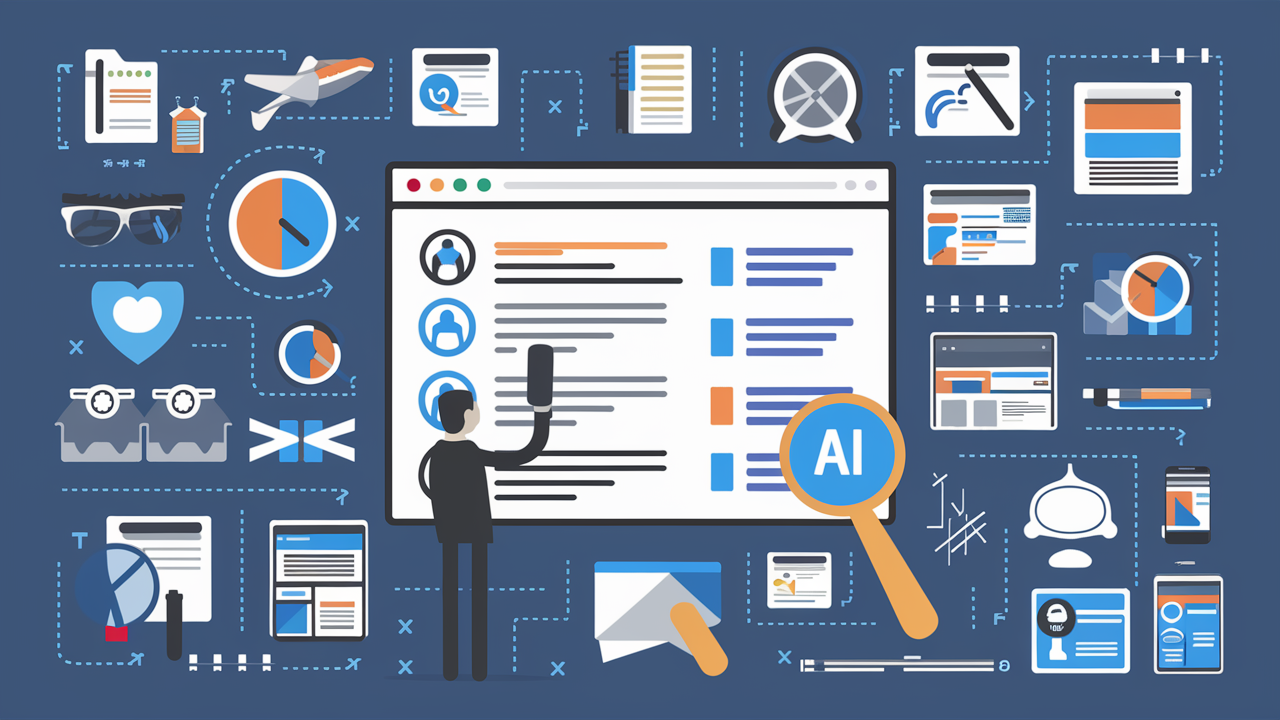TL;DR:
- AI is transforming search results: AI models like Gemini analyze user behavior and context for precise, personalized search outcomes.
- SEO is evolving: Traditional keyword stuffing is being replaced by a focus on content quality, intent matching, and contextual relevance.
- Dynamic search algorithms: AI learns from real-time data, making results more adaptive than ever before.
- Opportunities for businesses: High-quality, intent-driven content will thrive; structured data and NLP integration are key for visibility.
- Challenges ahead: Businesses must adapt quickly to AI-driven ecosystems to remain competitive in the digital landscape.
Artificial Intelligence (AI) has revolutionized countless industries, and search engines are no exception. Search result pages are evolving from static lists of blue links into adaptive, user-centric responses driven by powerful AI models. In this article, we’ll explore how AI-generated search results are changing SEO strategies, reshaping user experiences, and creating unique opportunities for businesses to thrive.
What Are AI-Generated Search Results?
AI-generated search results leverage advanced algorithms and natural language processing (NLP) models to display information tailored to each user’s intent, preferences, and search context.
How Do They Differ From Traditional Search Results?
Traditional search results rely largely on predefined algorithms that analyze factors such as backlinks and keyword occurrences. In contrast, AI models like Gemini focus on a more nuanced understanding of user queries. They consider factors like language, location, user history, and trends to present results that are more personalized.
For example, if two people search for ‘best laptop,’ one might see results optimized for gaming laptops, while another sees recommendations for work-related devices. This personalization ensures a superior user experience but also presents new challenges for SEO professionals.
Core Technologies Behind AI Search Results
AI-powered search relies on key technologies such as:
- Machine Learning: AI learns from search behavior over time to refine recommendations.
- NLP: Natural language models interpret human language, making sense of complex, conversational queries.
- Contextual Data Analysis: Models analyze user demographics, search history, and device location to provide relevant results.
These technologies collectively work to decode intent and prioritize meaningful content over outdated SEO tactics.
Why AI-Generated Search Results Matter
The rise of AI-generated search results signals a major shift in how users access information and how businesses optimize content for visibility. Understanding this shift is critical for maintaining relevance in today’s digital landscape.
Personalization for Individual Users
AI doesn’t just search—it interacts. By analyzing specific preferences, it delivers results tailored to user intent. This means content creators must shift focus from generic optimization to intent-driven storytelling that resonates with users.
Better Conversational Search
With the integration of NLP, search engines handle conversational queries effortlessly. For instance, typing ‘How do I bake a vegan cake?’ now yields precise, step-by-step guides instead of scattered mixed results. Content that addresses specific questions directly is rewarded in these systems.
Real-Time Adaptation
Unlike static algorithms, AI systems continuously learn from real-world data. This real-time adaptability means SEO efforts need to be dynamic, with a readiness to pivot strategies based on emerging trends or updated user behavior.
SEO in the Age of AI Search
For SEO professionals, AI represents both a challenge and an opportunity. Here’s how to stay ahead:
1. Focus on High-Quality Content
Engaging, well-researched content that answers user questions will outperform keyword-stuffed pages. Signals like dwell time and content relevance are prioritized by AI systems over superficial keyword density.
2. Optimize for User Intent
Intent is king. Understanding the type of information your audience seeks—whether transactional, informational, or navigational—can help structure your site to match varying user needs. This is especially critical for ranking highly in AI-curated search results.
3. Structured Data Implementation
Rich snippets, FAQ sections, and schema markup make it easier for AI-powered systems to crawl your site. Structured data provides additional context and enables your content to appear in features like quick answers or image carousels.
4. Use Conversational Keywords
Users are increasingly interacting with search engines like they do with virtual assistants. This conversational tone demands optimization for long-tail keywords like ‘What’s the best smartphone for photographers in 2023?’
5. Stay Updated on AI Trends
AI evolves rapidly, and search engines update algorithms frequently. Keeping up with industry publications, AI advancements, and best practices is essential to maintaining visibility.
Opportunities for Businesses and Content Creators
The good news is that businesses willing to adapt can excel in this new AI-driven landscape. Content creators who prioritize intent, contextual relevance, and accessibility will have a competitive edge.
1. Enhanced Visibility with Local Search
AI-generated search results are reshaping local SEO. By understanding user location and preferences, businesses can connect with nearby customers more effectively. For example, restaurants that optimize for phrases like ‘best vegan lunch near me’ can appear in personalized local results.
2. Building Authority Through E-E-A-T
Search engines are prioritizing content with experience, expertise, authority, and trustworthiness (E-E-A-T). Showcase your authority in a specific niche by maintaining an active presence across platforms, publishing actionable insights, and earning high-quality backlinks.
3. Diversified Content Formats
Text isn’t always the best medium. AI-driven visual search features prioritize videos, images, and other content types in certain contexts. Experimenting with diverse formats, such as short explainer videos or interactive infographics, can boost visibility across platforms.
Challenges of AI Search Systems
While AI-generated search has advantages, it also presents certain challenges:
- Content Saturation: AI systems identify and promote content faster than ever, making competition fierce.
- Bias and Ethics: With AI-driven curation, there’s a risk of results being skewed by inherent algorithmic biases.
- Loss of Traffic: Features like direct answers reduce click-through rates (CTR) as users receive key information directly on the search page.
Understanding these challenges equips businesses to mitigate risks and maximize opportunities.
Visualizing the AI Impact
An infographic illustrating the shift from traditional search to AI-powered results could summarize:
- The key differences between traditional and AI-driven search outcomes.
- User benefits, such as precision and personalization.
- SEO updates required for effective adaptation.
This visual can help businesses and marketers grasp the immediate changes AI brings to search engines.
Conclusion
Understanding AI-generated search results is essential for anyone navigating the digital space. By adapting to this new era, businesses and content creators can future-proof their strategies and remain relevant in an increasingly competitive market. With a focus on intent, quality content, and adaptability, the challenges of AI can become opportunities.
Call to Action: Curious how AI can help your business thrive? Contact us to uncover how adopting AI strategies can improve your visibility and growth online.

